|
The Heidelberg Catechism: Lord's Day 19
50. Question: Why is it added, ‘And sits at the right hand of God’? Answer: Christ ascended into heaven to manifest Himself there as Head of His Church,[1] through whom the Father governs all things.[2] [1] Eph. 1:20-23; Col. 1:18. [2] Matt. 28:18; John 5:22, 23. 51. Question: How does the glory of Christ, our Head, benefit us? Answer: First, by His Holy Spirit He pours out heavenly gifts upon us, His members.[1] Second, by His power He defends and preserves us against all enemies.[2] [1] Acts 2:33; Eph. 4:7-12. [2] Ps. 2:9; 110:1, 2; John 10:27-30; Rev. 19:11-16. 52. Question: What comfort is it to you that Christ will come to judge the living and the dead? Answer: In all my sorrow and persecution I lift up my head and eagerly await as judge from heaven the very same person who before has submitted Himself to the judgment of God for my sake, and has removed all the curse from me.[1] He will cast all His and my enemies into everlasting condemnation, but He will take me and all His chosen ones to Himself into heavenly joy and glory.[2] [1] Luke 21:28; Rom. 8:22-25; Phil. 3:20,21; Tit. 2:13, 14. [2] Matt. 25:31-46; I Thess. 4:16, 17; II Thess. 1:6-10.
0 Comments
The Heidelberg Catechism: Lord's Day 18
46. Question: What do you confess when you say, He ascended into heaven? Answer: That Christ, before the eyes of His disciples, was taken up from the earth into heaven,[1] and that He is there for our benefit[2] until He comes again to judge the living and the dead.[3] [1] Mark 16:19; Luke 24:50, 51; Acts 1:9-11. [2] Rom. 8:34; Heb. 4:14; 7:23-25; 9:24. [3] Matt. 24:30; Acts 1:11. 47. Question: Is Christ, then, not with us until the end of the world, as He has promised us?[1] Answer: Christ is true man and true God. With respect to His human nature He is no longer on earth,[2] but with respect to His divinity, majesty, grace, and Spirit He is never absent from us.[3] [1] Matt. 28:20. [2] Matt. 26:11; John 16:28; 17:11; Acts 3:19-21; Heb. 8:4. [3] Matt. 28:18-20; John 14:16-19; 16:13. 48. Question: But are the two natures in Christ not separated from each other if His human nature is not present wherever His divinity is? Answer: Not at all, for His divinity has no limits and is present everywhere.[1] So it must follow that His divinity is indeed beyond the human nature which He has taken on and nevertheless is within this human nature and remains personally united with it.[2] [1] Jer. 23:23, 24; Acts 7:48, 49. [2] John 1:14; 3:13; Col. 2:9. 49. Question: How does Christ's ascension into heaven benefit us? Answer: First, He is our Advocate in heaven before His Father.[1] Second, we have our flesh in heaven as a sure pledge that He, our Head, will also take us, His members, up to Himself.[2] Third, He sends us His Spirit as a counter-pledge,[3] by whose power we seek the things that are above, where Christ is, seated at the right hand of God, and not the things that are on earth.[4] [1] Rom. 8:34; I John 2:1. [2] John 14:2; 17:24; Eph. 2:4-6. [3] John 14:16; Acts 2:33; II Cor. 1:21, 22; 5:5. [4] Col. 3:1-4. The Heidelberg Catechism: Lord's Day 17
45. Question: How does Christ's resurrection benefit us? Answer: First, by His resurrection He has overcome death, so that He could make us share in the righteousness which He had obtained for us by His death.[1] Second, by His power we too are raised up to a new life.[2] Third, Christ's resurrection is to us a sure pledge of our glorious resurrection.[3] [1] Rom. 4:25; I Cor. 15:16-20; I Pet. 1:3-5. [2] Rom. 6:5-11; Eph. 2:4-6; Col. 3:1-4. [3] Rom. 8:11; I Cor. 15:12-23; Phil. 3:20, 21. The Heidelberg Catechism: Lord's Day 15
37. Question: What do you confess when you say that He suffered? Answer: During all the time He lived on earth, but especially at the end, Christ bore in body and soul the wrath of God against the sin of the whole human race.[1] Thus, by His suffering, as the only atoning sacrifice,[2] He has redeemed our body and soul from everlasting damnation,[3] and obtained for us the grace of God, righteousness, and eternal life.[4] [1] Is. 53; I Tim. 2:6; I Pet. 2:24; 3:18. [2] Rom. 3:25; I Cor. 5:7; Eph. 5:2; Heb. 10:14; I John 2:2; 4:10. [3] Rom. 8:1-4; Gal. 3:13; Col. 1:13; Heb. 9:12; I Pet 1:18, 19. [4] John 3:16; Rom. 3:24-26; II Cor. 5:21; Heb. 9:15. 38. Question: Why did He suffer under Pontius Pilate as judge? Answer: Though innocent, Christ was condemned by an earthly judge,[1] and so He freed us from the severe judgment of God that was to fall on us.[2] [1] Luke 23:13-24; John 19:4, 12-16. [2] Is. 53:4, 5; II Cor. 5:21; Gal. 3:13. 39. Question: Does it have a special meaning that Christ was crucified and did not die in a different way? Answer: Yes. Thereby I am assured that He took upon Himself the curse which lay on me, for a crucified one was cursed by God.[1] [1] Deut. 21:23; Gal. 3:13. The Heidelberg Catechism: Lord's Day 14
35. Question: What do you confess when you say: He was conceived by the Holy Spirit, born of the virgin Mary? Answer: The eternal Son of God, who is and remains true and eternal God,[1] took upon Himself true human nature from the flesh and blood of the virgin Mary,[2] through the working of the Holy Spirit.[3] Thus He is also the true seed of David,[4] and like His brothers in every respect,[5] yet without sin.[6] [1] John 1:1; 10:30-36; Rom. 1:3; 9:5; Col. 1:15-17; I John 5:20. [2] Matt. 1:18-23; John 1:14; Gal. 4:4; Heb. 2:14. [3] Luke 1:35. [4] II Sam. 7:12-16; Ps. 132:11; Matt. 1:1; Luke 1:32; Rom. 1:3. [5] Phil. 2:7; Heb. 2:17. [6] Heb. 4:15; 7:26, 27. 36. Question: What benefit do you receive from the holy conception and birth of Christ? Answer: He is our Mediator,[1] and with His innocence and perfect holiness covers, in the sight of God, my sin, in which I was conceived and born.[2] [1] I Tim. 2:5, 6; Heb. 9:13-15. [2] Rom. 8:3, 4; II Cor. 5:21; Gal. 4:4, 5; I Pet. 1:18, 19. The Heidelberg Catechism: Lord's Day 13
33. Question: Why is He called God's only begotten Son, since we also are children of God? Answer: Because Christ alone is the eternal, natural Son of God.[1] We, however, are children of God by adoption, through grace, for Christ's sake.[2] [1] John 1:1-3, 14, 18; 3:16; Rom. 8:32; Heb. 1; I John 4:9. [2] John 1:12; Rom. 8:14-17; Gal. 4:6; Eph. 1:5, 6. 34. Question: Why do you call Him our Lord? Answer: Because He has ransomed us, body and soul,[1] from all our sins, not with silver or gold but with His precious blood,[2] and has freed us from all the power of the devil to make us His own possession.[3] [1] I Cor. 6:20; I Tim. 2:5, 6. [2] I Peter 1:18, 19. [3] Col. 1:13, 14; Heb. 2:14, 15. The Heidelberg Catechism: Lord's Day 12
31. Question: Why is He called Christ, that is, Anointed? Answer: Because He has been ordained by God the Father, and anointed with the Holy Spirit,[1] to be our chief Prophet and Teacher,[2] who has fully revealed to us the secret counsel and will of God concerning our redemption;[3] our only High Priest,[4] who by the one sacrifice of His body has redeemed us,[5] and who continually intercedes for us before the Father;[6] and our eternal King,[7] who governs us by His Word and Spirit, and who defends and preserves us in the redemption obtained for us.[8] [1] Ps. 45:7 (Heb. 1:9); Is. 61:1 (Luke 4:18; Luke 3:21, 22. [2] Deut. 18:15 (Acts 3:22). [3] John 1:18; 15:15. [4] Ps. 110:4 (Heb. 7:17). [5] Heb. 9:12; 10:11-14. [6] Rom. 8:34; Heb. 9:24; I John 2:1. [7] Zach. 9:9 (Matt. 21:5); Luke 1:33. [8] Matt. 28:18-20; John 10:28; Rev. 12:10, 11. 32. Question: Why are you called a Christian? Answer: Because I am a member of Christ by faith[1] and thus share in His anointing,[2] so that I may as prophet confess His Name,[3] as priest present myself a living sacrifice of thankfulness to Him,[4] and as king fight with a free and good conscience against sin and the devil in this life,[5] and hereafter reign with Him eternally over all creatures.[6] [1] I Cor. 12:12-27. [2] Joel 2:28 (Acts 2:17); I John 2:27. [3] Matt. 10:32; Rom 10:9, 10; Heb. 13:15. [4] Rom. 12:1; I Pet. 2:5, 9. [5] Gal. 5:16, 17; Eph. 6:11; I Tim. 1:18, 19. [6] Matt. 25:34; II Tim. 2:12. Living as Light
In this chapter we will continue looking at what it means to understand how our faith applies to all of life. We saw in the last chapter how Jesus used the image of salt to explain that his disciples are called to impact the culture in which they live. Salt was used in the ancient world as a preserving agent which helped slow down the spoilage of food. So too, Christians are called to hold back the moral and spiritual decay that surround us. Because of who we are in Christ, Jesus does not tell us to “be” salt, but reminds us that we are salt and therefore are expected to live like it. We’re going to look at the other half of Jesus’ words in Matthew 5:13-16. Here he is sounding a similar note to his words on being the salt of the earth. Because we are light, we must live as light in a dark world. Jesus teaches, “You are the light of the world. A city on a hill cannot be hidden. Neither do people light a lamp and put it under a bowl. Instead they put it on its stand, and it gives light to everyone in the house. In the same way, let your light shine before men, that they may see your good deeds and praise your Father in heaven. (Matthew 5:14-16) Your Influence We each exert influence in the lives of others, whether we recognize it or not. President Woodrow Wilson once told the following story which makes this point. “I was in a very common place, I was sitting in a barber chair, when I became aware that a powerful personality had entered the room. A man had come quietly in upon the same errand as myself – to have his hair cut – and sat in the chair next to me. Every word the man uttered, though it was not in the least didactic, showed a personal interest in the man who was serving him. And before I got through with what was being done to me, I was aware that I had attended an evangelistic service, because Mr. D.L. Moody was in that chair. I purposely lingered in the room after he had left and noted the singular effect that his visit had brought upon the barber shop. They talked in undertones. They didn’t know his name but they knew something had elevated their thoughts, and I felt that I left that place as I should have left a place of worship.” Can you imagine exerting that much godly influence, simply while getting your hair cut? That gives us a glimpse of what it means to be a light, but we must look more deeply at Jesus’ words. Just as Jesus’ purpose in calling his followers salt was to contrast them with the world, so too was he contrasting his followers with the world when he referred to them as light. The use of the word light points to the nature of the world around us. It is shrouded in thick darkness. In contrast to the darkness of the world, Jesus mentions two sources of physical light: the light from a city set on a hill and the light from a lamp set on a lampstand. A City on a Hill Long before Ronald Reagan called America a bright and shining city on a hill, there were the Puritans. Commenting on the early American Puritans, John Winthrop said, “[For the Puritans] All of life was spiritual, a seamless fabric integrating heart, soul, body, and mind in an effort to live life [in the presence of God]. The kingdom of Christ was not confined to private devotions or church gatherings, but extended into the realms of human knowledge and activity.” He called this effort and attitude, “a shining city upon a hill.” The Puritans sought to faithfully model before a dark world what it meant to be the light of Christ. If you have ever gone camping a far distance from a city or town, you may have a good idea of what total darkness can be like. I remember a camping trip in high school that took my friends and me a long way from the lights of civilization. The first night I was amazed I couldn’t see my fingers just inches in front of my face. Jesus’ audience lived in rural communities. They were familiar with pitch black darkness. They would have immediately understood what Jesus meant by being able to see the light of a city on a hill, even a faraway city. Those same people, being Jewish, may have instantly thought of Jerusalem as the great city set on a hill, giving its light to the world. But Jesus had a different light in mind. The Real Light In his teaching and preaching, Jesus pointed out that he was the Light of the world, and his followers were to share in that mission. He taught, for example, in John 8:12, “I am the light of the world. Whoever follows me will never walk in darkness, but will have the light of life.” It’s in light of those words that Jesus says, “You are the light of the world. A city on a hill cannot be hidden. Neither do people light a lamp and put it under a bowl. Instead, they put it on its stand, and it gives light to everyone in the house. In the same way, let your light shine before men, that they may see your good deeds and praise your Father in heaven.” William Hendrickson writes that Jesus’ followers - the light possessors – are now to be light transmitters. Reflectors of Light It’s important to note that Christians are not the light, in and of themselves. Only Jesus is the true light of the world. However, just as the moon has no light of its own but reflects the light of the sun, so must followers of Christ reflect his light in a dark world. When people see the Light of the world reflected in our lives, they aren’t witnessing our own light but the light of Christ dwelling in and shining through us. Like a city on a hill, Christians who let their light shine before others cannot be hidden. The good light from Christians helps to counter the overwhelming darkness of the world. A Lamp’s Small Flicker It’s not a coincidence that haunted houses are dark. Our minds run rampant when we find ourselves in a totally dark setting. Surely that is why evil is associated with darkness. Even the smallest amount of light makes darkness a little more bearable than it was before. Even the smallest flickering flame of an olive-oil lamp make us grateful in a totally dark setting. Such light would be a blessing in a home on a dark night. If you ever had a “night light” growing up, you know even the weakest bulb is more than enough to light your path. That’s why Jesus said in verse 15, Neither do people light a lamp and put it under a bowl. Instead, they put it on its stand, and it gives light to everyone in the house. Don’t Hide Your Light What would be the purpose of Jesus sending his followers into the world as light if they were only going to live as “undercover” Christians? Jesus is teaching it would be silly for people to light a candle or lamp, only to hide it under a bowl or cover of some kind. This is an important lesson about discipleship. Jesus says the very purpose of following him is to give his light to the world. Therefore, we read in verse 16, In the same way, let your light shine before men, that they may see your good deeds and praise your Father in heaven. How do Jesus’ disciples lighten the dark world around them? The light is the “good deeds” performed by his followers. According to Jesus, these good deeds are done in such a way that at least some people recognize Jesus’ followers as God’s sons and daughters and praise God because of them. Shine Where God Places You Sometimes our minds race to spectacular demonstrations of those who have been the “light of the world,” such as William Wilberforce, John Wesley, or Hannah More. While we thank God for faithful Christians like these, we should be encouraged to serve as the light of Christ right where God has placed us. When we practice godliness in our homes, showing love and putting our family members before ourselves, we show Christ’s light. Our light is also revealed in the workplace, where Jesus’ disciples are honest and work with integrity and excellence. When Christians stand for justice for the least or demonstrate mercy to those in need in our church family or community, our light shines brightly. Jesus, the light of the world, has saved and forgiven us, changed our hearts, given us hope, put his love in us, given us joy, and set our feet upon the rock which cannot be shaken. Surely our lives should reflect those truths in the way we love God and our neighbor. When we do, the dark world is less able to ignore or deny the light of our Lord, which shines in and through us. Walking Points
The Heidelberg Catechism: Lord's Day 11
29. Question: Why is the Son of God called Jesus, that is, Savior? Answer: Because He saves us from all our sins,[1] and because salvation is not to be sought or found in anyone else.[2] [1] Matt. 1:21; Heb. 7:25. [2] Is. 43:11; John 15:4, 5; Acts 4:11, 12; I Tim. 2:5. 30. Question: Do those believe in the only Savior Jesus who seek their salvation and well-being from saints, in themselves, or anywhere else? Answer: No. Though they boast of Him in words, they in fact deny the only Savior Jesus.[1] For one of two things must be true: either Jesus is not a complete Savior, or those who by true faith accept this Savior must find in Him all that is necessary for their salvation.[2] [1] I Cor. 1:12, 13; Gal. 5:4. [2] Col. 1:19, 20; 2:10; I John 1:7. Rule Rage
In Psalm 2, the nations are depicted as raging against God's rule. Such rebellion still exists in our day. On the personal level, the constitutional nature of each person has not changed since Psalm 2 was written. Individuals are still, in their fallen condition, at enmity with and rebellion against God and his reign in their lives. This human condition presents itself in different ways, perhaps as many as there are people. But it all stems from their sinful, fallen, and broken condition. It shows up corporately as well. Such "raging" against God's rule and reign is revealed in groups, systems, and even the culture at large, much of which appears as desiring and pursuing the opposite of what God wills and commands. Wag the Dog Yet none of this is done in ignorance. The nations (and individuals) know what they are doing. This is where Romans 1:18-21 comes in. God has made himself plain (evident) to all so that no one has an excuse. Yet people in their fallen human condition suppress the truth they know about God in unrighteousness. They neither glorify nor thank God, but instead, their thinking becomes futile, and their foolish hearts are darkened. They do not want a belief system that stifles their desires and pursuits. They don't want a worldview and faith that leads to repentance and new life. They don’t want to be ruled by Another. Thus, their desires and lifestyles wag the dog. In other words, they adjust their worldview to fit their desires and the ways in which they want to live. They mistakenly view the freedom God permits to be autonomy with impunity. We know this to be true because God’s Word teaches it. We know this is true because we once walked in their shoes. Thus, our hearts ought to ache for those walking in such rebellion and brokenness. Salt and Light As followers of Jesus Christ, we are called to be his ambassadors, his witnesses, to precisely these individuals, these systems, this culture. Christ tells us we are salt and light in this dark and decaying world. He commands us to go to and be for these people who were created in his image. Ours is a message of reconciliation and reclamation. It's the good news that even in our rebellion against the King of the universe, he has made a way to re-create that fallen and broken image through our redemption in Christ Jesus our Lord. Our task is to learn how to faithfully bear witness to those in our spheres of influence. Instead of a cookie-cutter approach to our witness, we need to really listen to, learn about, and get to know our neighbors so we can discover how their sin, rebellion, and brokenness are manifested in their lives. We know what their ultimate need is. We know what (Who) the ultimate answer to their need is. Yet, we want to be able to communicate that answer to them in a way they will understand and even appreciate, while trusting God for the results. Walking Points
|
Stand FirmBe on your guard; stand firm in the faith; be courageous; be strong. Do everything in love. Categories
All
Archives
July 2023
|


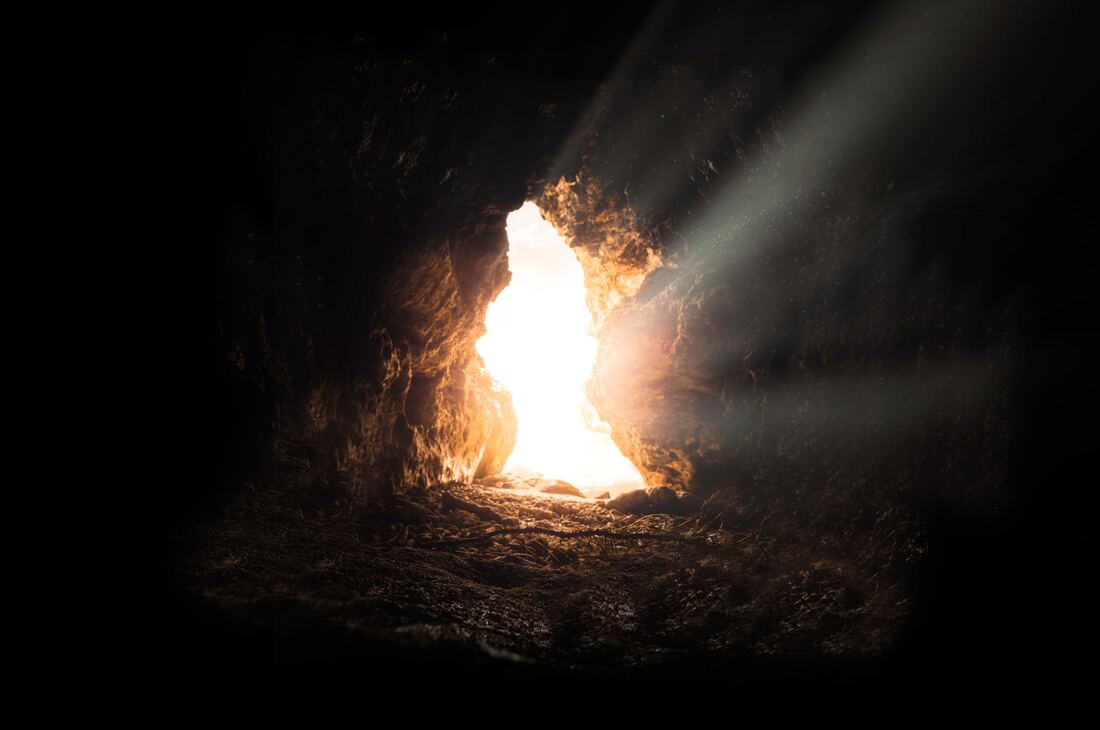
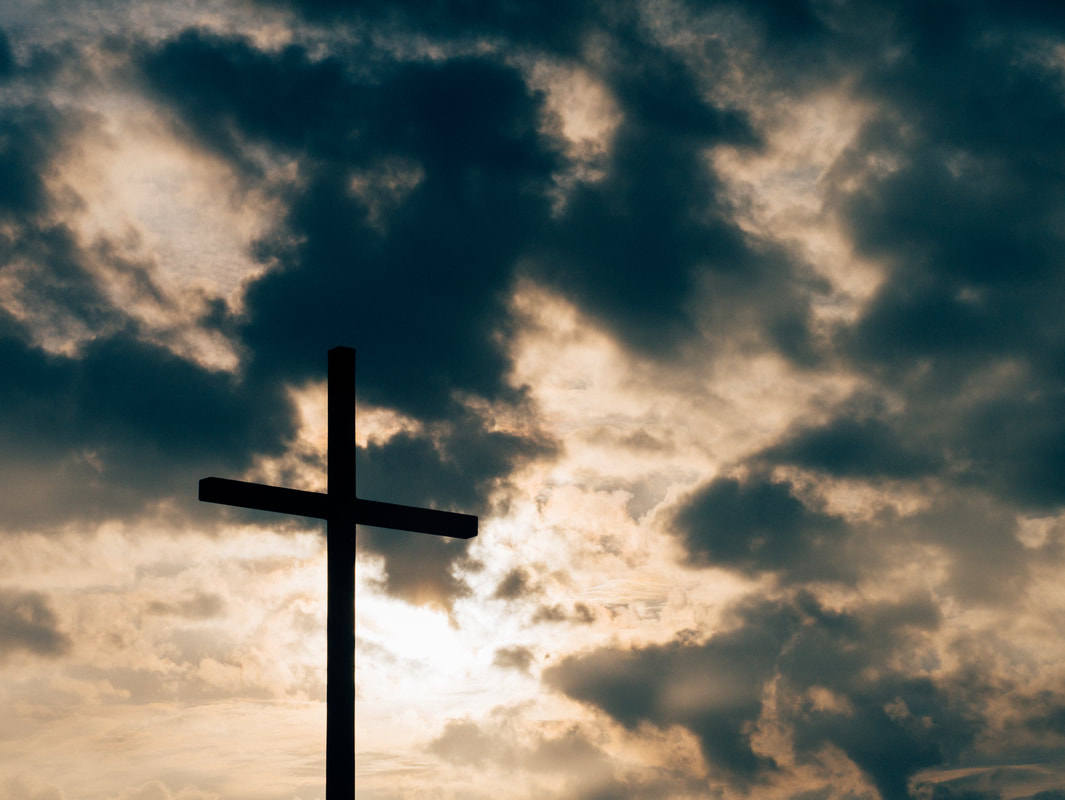
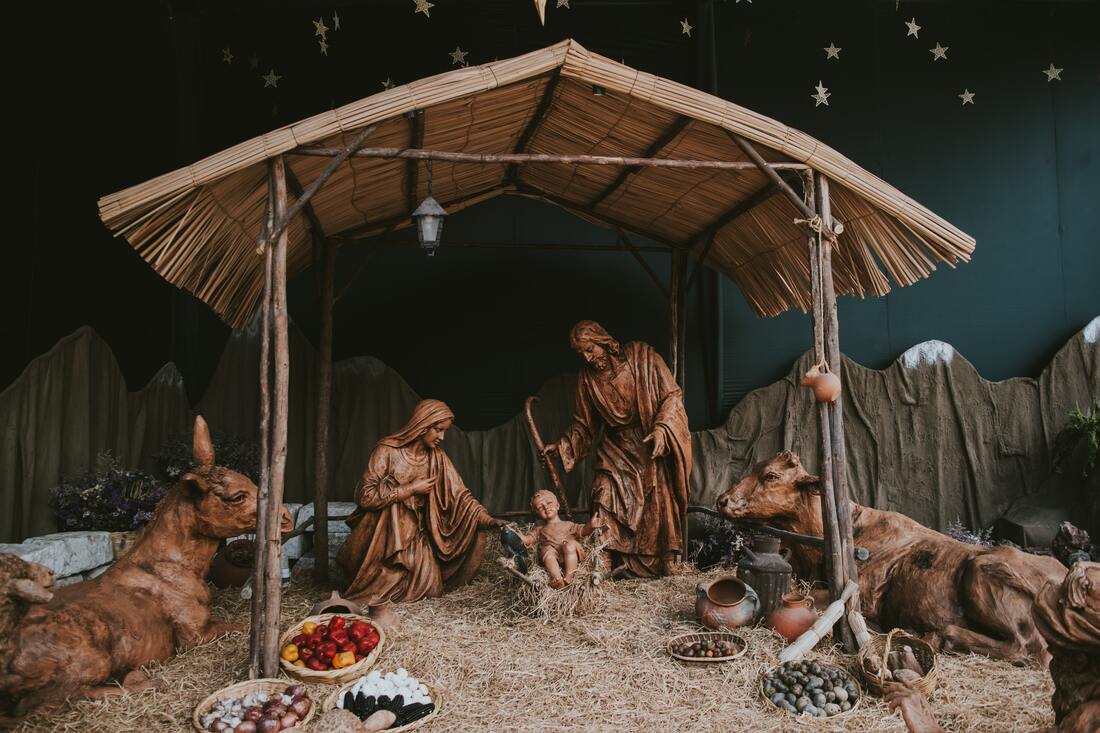
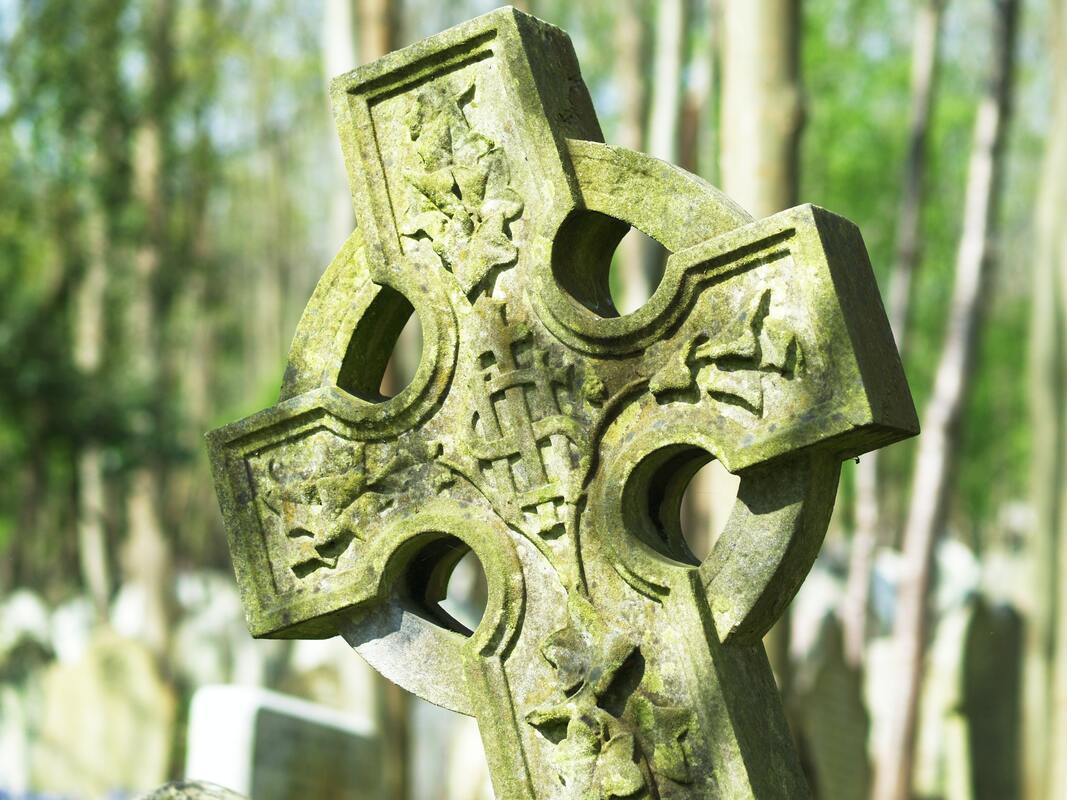
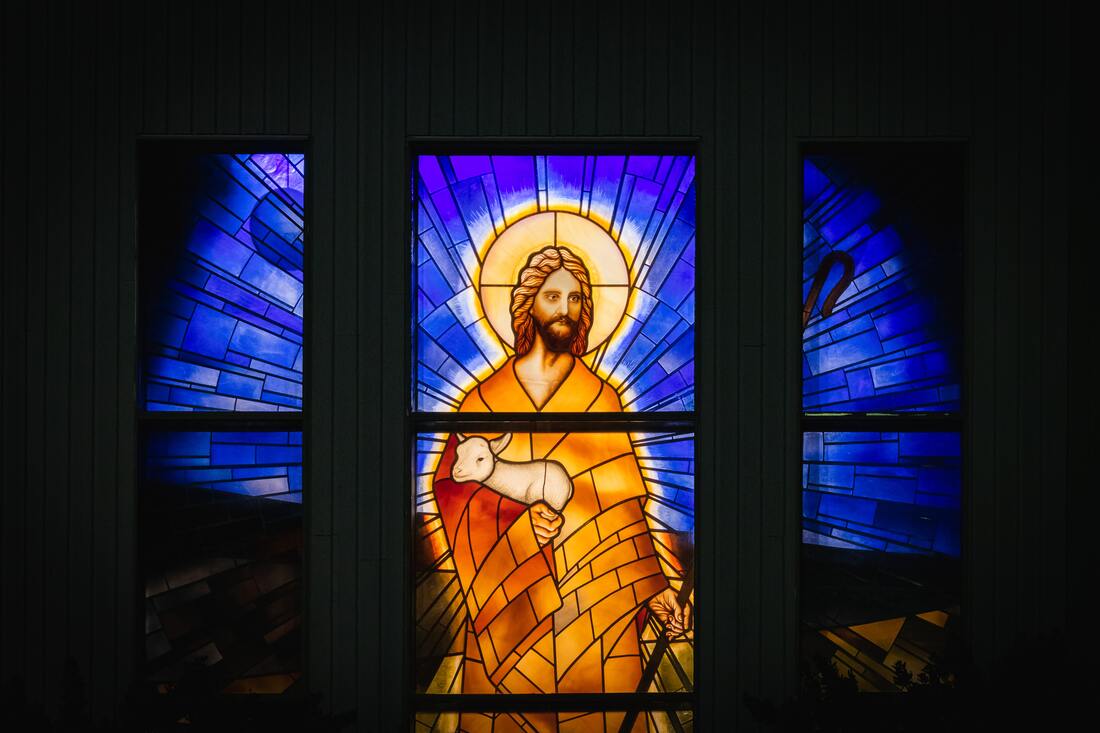

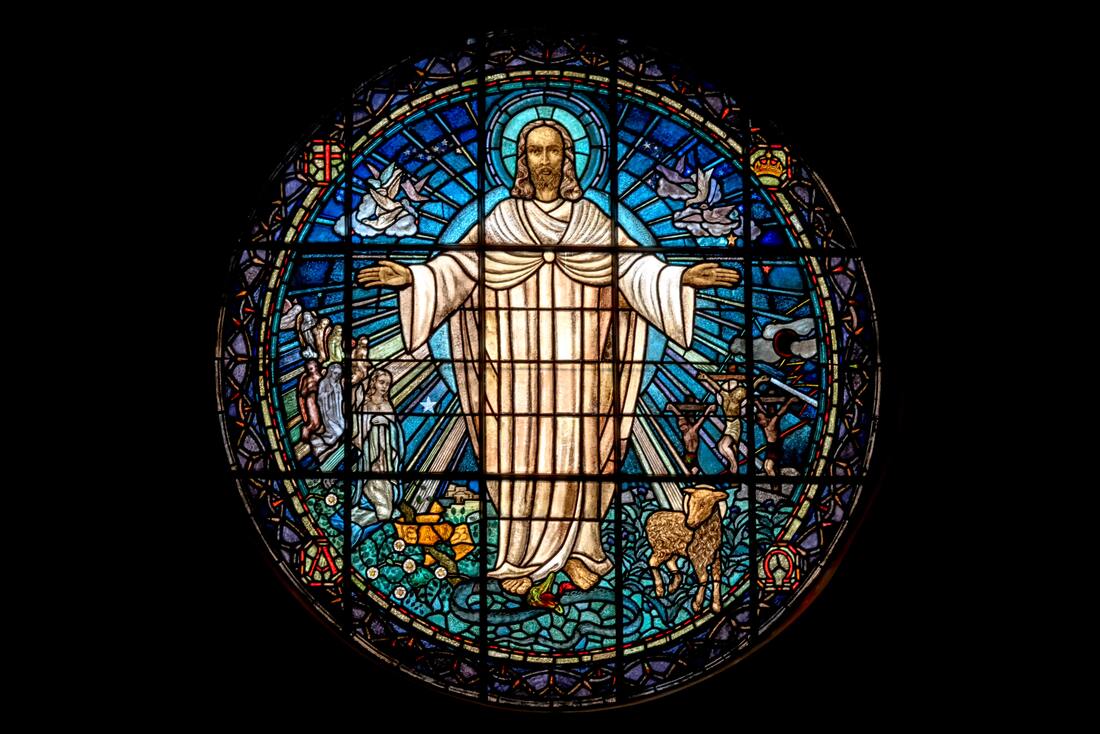

 RSS Feed
RSS Feed
